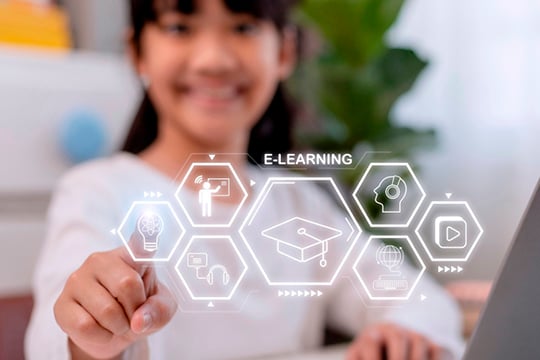Camps, school & family: community life as the key to children's social development
"Хүүхэд өсгөхөд бүхэл бүтэн тосгон шаардагдана" гэж Африкийн зүйр үг байдаг. Хүүхдийн оюун ухаан, сэтгэл хөдлөл, нийгмийн хөгжилд ойрын гэр бүл дангаараа хангалтгүй гэдэгтэй сурган хүмүүжүүлэх мэргэжилтнүүд, сэтгэл судлаачид санал нэгддэг. Тэдэнд гэр бүлээс гадуурх олон нийт, харилцаа холбоо хэрэгтэй бөгөөд тэдний насны үе тэнгийнхэн нь онцгой чухал бүлэг юм.
Хүүхдийн төрөлхийн сониуч зан нь олон төрлийн ур чадваруудыг сурахад түлхэц болдог. Хүүхэд өсч томрох тусам тэдний сонирхол нэмэгдэж, бусадтай улам бүр илүү харилцаа тогтоох боломжийг олгодог. Гэхдээ эхлээд тэд янз бүрийн үүрэг, зан үйлийн хэв маягийг сурч, бусадтай хэрхэн харилцахаа ойлгох хэрэгтэй. Хүүхэд эхтэйгээ байнга ойрхон байдаг тул хамгийн түрүүнд ээж нь ямар байх ёстойг сурдаг. Хожим нь тэд аав, ах дүү, өвөө эмээ, магадгүй авга ах, нагац эгчийнхээ тухай мэддэг. Хожим нь энэ хүрээлэлд найз нөхөд, ангийнхан, багш нар болон зарим нэг сонирхолтой танилууд багтах болно. Хүүхэд харсан жишээнүүдээ хуулж аваад, "би ямар хүн бэ?", "би бусдын дунд ямар хүн бэ?" гэж өөрийгөө тодорхойлоход ашигладаг.
Хүүхэд ойрын гэр бүлийн хүрээллээсээ холдох тусам илүү олон үүрэг рольтой тулгардаг бөгөөд ингэснээр тэд өөрсдийгөө тодорхойлох зан үйлийн хэрэглүүрээ өргөжүүлдэг. Тэд янз бүрийн нийгэмлэгүүд зан үйлийн янз бүрийн хэлбэрийг хэвийн, хүлээгдэж буй зүйл гэж үздэгийг сурдаг. Хүүхэд олон олон нийттэй танилцах тусам насанд хүрэгчдийнхээ амьдралд шаардлагатай дасан зохицох, шийдвэр гаргах чадваруудыг хурдан, илүү сайн сурдаг. Зарим нийгэмлэгүүд тэдэнд шийдвэр гаргагч, удирдагч болох боломжийг олгоно; зарим нь тэднийг удирдагчийн хүсэл зориг эсвэл өөрийн үе тэнгийнхний хүсэлд дасан зохицохыг албадах болно. Заримд нь буулт хийх хэрэгтэй болдог бол заримд нь өөрсдийн санаа бодлыг дагаж чаддаг.

The child will first experience the real possibility of choice outside of family and school, since that's where they'll first face a task or problem that nobody will solve for them. Their choices and effort in such a situation will teach them that nobody is perfect, and the success they achieve in their community will eventually also improve self-confidence. This is why it's important for children to test themselves in many different communities: doing so gives them experience, self-confidence, and a feeling of achievement.
Children today will inevitably join online communities, too. It's important for parents to talk to their kids about the dangers of the online world relatively early. Yet, it's also important to note that communities in the digital space can have advantages: a kid might make new friendships, keep in touch with friends after moving, or get to know peers from far corners of the world with shared hobbies, with whom they might create something together. A positive online community can be vital in shaping a modern child's self-confidence. A 2009 study1 centered on Israeli schoolchildren shows the importance of online participation. The children were using a visual programming language to create videos and games, and they also shared the fruits of their labor online. The researchers have shown that kids who were active participants in the community's online life received more feedback on their work than those who only concentrated on creating things. This proves that it's not enough to use the Internet merely for work and creation, since you won't reach your goals without being a part of online communities.
Next to family and school, a camp can be another important site of socialization for children. The family does not usually expose a child to new impulses; school life is highly regulated, with no chance to freely try out the various strategies of community behavior. Shorter-lived communities like camps, however, are great places for such experimentation. Children will "take away" different useful lessons from every camp on who they are, how they relate to others, and how they can behave in a community. They also feel more at ease at a camp than in school, and they have a more open mindset toward others. This, in turn, makes it easier for them to find new friends, or even a whole new area of interest that might prove decisive for their future success. Kids coming home from camp bring back not only useful knowledge, but also increased self-confidence.
Logiscool recognized the importance of shorter-lived communities long ago, and that is why we offer exciting daytime and online camps in addition to our courses and workshops. Among other topics, children can explore Minecraft, Roblox, coding, robotics, and digital media at our camps – and they might even find a new hobby, or build the foundations of their future profession. Our small groups offer not only useful knowledge mastered in a playful way, but also long-lasting, positive community experiences.
You can find more information on our Logiscool camps at the following page: https://www.logiscool.com/mn/programs/camps


